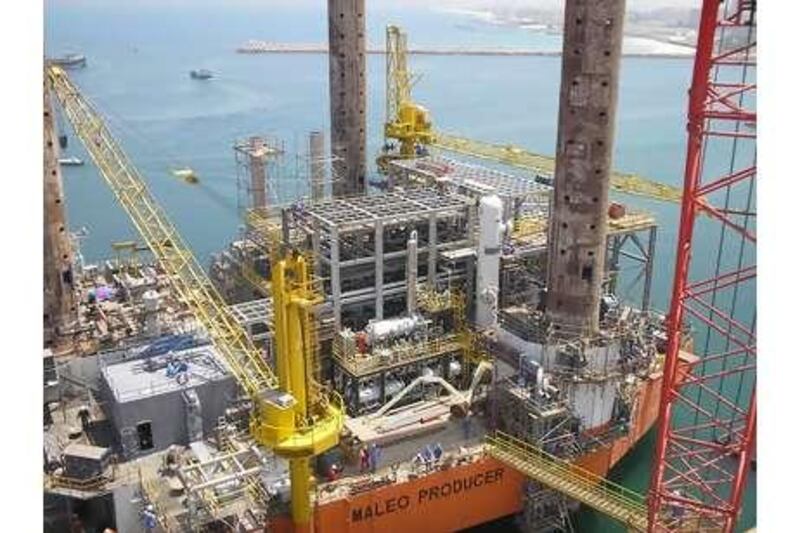In the rugged territory east of Sanaa, the capital of Yemen, Global Process Systems (GPS) and its partner Kentz are careful to hire local tribesmen and their earth-moving equipment to ensure their first joint project remains on schedule. Security and inter-tribal conflict are big concerns in this remote corner of northern Yemen, so the partners, based respectively in the UAE and Ireland, have appointed Yemeni staff to liaise with the local tribes. They have also enlisted the country's labour department to ensure the tribes are offered equal opportunities to participate in the US$200 million (Dh734.6m) contract to build an oil-processing facility.
Operating in Yemen is an adventure neither firm was likely to undertake alone. Until recently, GPS was a dispirited outfit whose major shareholder, Al Jaber Group, was seeking a buyer to take the company off its hands. But now, after a rethink by Al Jaber and with a new chief executive, the Dubai-based oil and gas services company is humming with energy. "There's a huge amount of enthusiasm and drive to really succeed with the new GPS. There's a lot of excitement about what we can achieve," said Ian Prescott, the chief executive, who was formerly the director and general manager of GPS's Singapore office.
"We are very thankful that Al Jaber had the good fiscal sense and wisdom to look at the potential of the business and the macro-environment." GPS designs and builds oil and gas-processing equipment, especially for companies developing offshore fields, and provides precision engineering services. It is not an obvious fit with Al Jaber, a family-owned Abu Dhabi conglomerate that has established itself as the emirate's biggest construction enterprise.
Al Jaber acquired its 80 per cent holding in GPS in 2004 when it was branching into other businesses. It also viewed GPS, with work yards in Abu Dhabi and Indonesia, as a vehicle for expansion into South East Asia. By 2007, however, the group was seeking to reduce its holding in GPS through a share offering on the AIM market of the London Stock Exchange. The plan was shelved because Al Jaber found the suggested offering price disappointing.
GPS promptly landed several large contracts, boosting its annual revenue to a record $350m in 2008. Then the global financial crisis intervened, prompting Al Jaber to seek a corporate buyer. It received an offer, said Mr Prescott, but judged it unsatisfactory. A potentially game-changing development for GPS was the strategic alliance it forged last year with the larger oil services group Kentz. The Irish group had been in business for 90 years and was most strongly focused in the Middle East. It had a solid reputation and attracted repeat business in the same sectors in which GPS was active.
The two companies had already collaborated on engineering and design work. They felt their services were complementary and could form a platform for winning bigger contracts. Kentz had previously nailed a $400m package of specialist construction and technical support services for the Pearl gas-to-liquids project in Qatar, a $19 billion joint venture between the state-owned Qatar Petroleum and Royal Dutch Shell. GPS's biggest contract, worth $100m, had been to supply mobile offshore oil production units in South East Asia.
Together, the partners could take on contracts of up to $500m, Mr Prescott estimated. They are off to a good start with the Yemeni engineering and construction contract from the Austrian energy group OMV. Clint Elgar, the former chief executive of GPS and a founder of the company, made way for Mr Prescott and a new business strategy after Al Jaber decided to keep the company. He retains his 10 per cent shareholding.
Mr Prescott plans to focus on the Gulf region, where he sees opportunities to work with Kentz in Abu Dhabi, Oman and Iraq. "We've done very little work in the local market on our doorstep," he said. In Abu Dhabi, GPS was previously hired by South Korea's Hyundai Heavy Industries, a contractor for Abu Dhabi National Oil Company, to design and supply a large fuel-gas treatment package for the giant Umm Shaif offshore oilfield. Mr Prescott hopes to benefit from Abu Dhabi's energy alliance with South Korea to win further contracts.
GPS's revenue fell 30 per cent last year because of the economic downturn, but Al Jaber was financially supportive. Mr Prescott expects to see a turnaround by next year. "It helps immensely when you can bring a company with the financial resources of Al Jaber to the table," he said. @EMail:tcarlisle@thenational.ae





